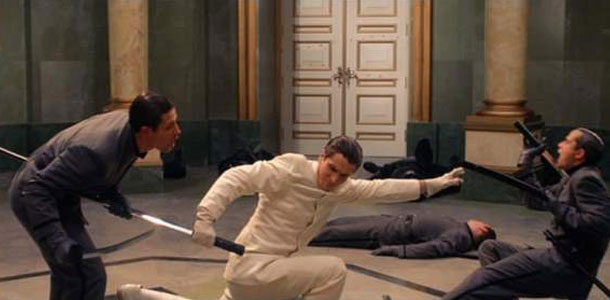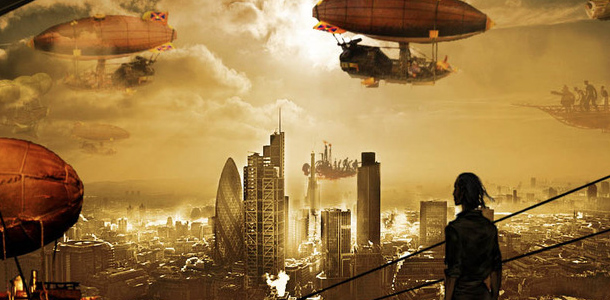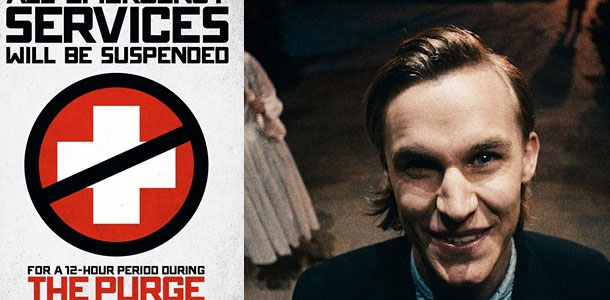Alternate Universes: How Did We Get Here?
In a recent article, io9 talked about the supposed “rules” they have for alternative universes in fiction. It got me thinking about alternate universes in a big way; I’ve never been one to shy away from such things, in fact I think I prefer a little magical realism, or a slight slanting of the world I’m reading about in the direction of the weird.
I’m not crystal clear I agree with them on everything they say (like having to bring it to the present), but it does make for interesting reading. One thing I try to ask myself when I watch a movie, or read a book is: “what steps happened to make this the way it is?” In other words, “How did we get here?”
How Did We Get Here?
I’m sure we’ve all read a bad story. I was listening to some fiction podcasts once, and one of them started in a classic way: “It was after the war, we were working in the salt mines, we were chained together. My overseer whipped and told me to mine harder”, or a passage to that effect, and it gave me pause for thought (before I stopped listening and deleted it). How likely is it that something that obviously bad would happen, and that quickly? This story is guilty of not taking into account the rich tapestry of events and contexts that forms a society, or indeed an experience or history.
History is a process that gets defined by big events, but is not necessarily hostage to them. Social changes can be subtle, and don’t always have to come at the barrel of a gun. Of course, this would make Hollywood’s depictions slightly less sexy.
Looper
“Time travel has not been invented yet,” Joseph Gordon-Levitt’s character states wryly, wrinkling his weird and unnatural prosthetic nose (I didn’t like this movie, nor can I remember the characters names).
A film, which I had assumed was going to be about identity and the nature of the self (meeting an older version of yourself would surely raise these questions) rested its big, unsustainable butt cheeks on top of two ill-defined principles: namely time-travel and telekinesis. Yeah, I know.
Unfortunately, the film falls apart after that. Two impossible things, brought together with absolutely no context for either or their existence. The film is an example of something that doesn’t follow it’s own rules (a common pitfall among AU). By the time you’ve wondered why the guys in the future were able to kill Bruce Willis’ wife without any problem despite the supposed harsh laws, you’ve ignored that the “Rainmaker” is coming and you hardly care.
Concentrating too much on the one changed event, instead of all the events that led up to it.
Equilibrium
It’s the near future (classic opening) and all emotion has been outlawed. Really? Okay, so it’s taking fascist thought to its logical conclusion, and in that its an interesting thought experiment. Mostly, the film throws any weight of the argument it had out of the window when Taye Diggs fights Christian Bale with a samurai sword in a palace.
An emotionless future is an interesting idea, but it’s hard to see the necessary steps that came before that mandated a worldwide, unequivocal ban on being sad. As the article states in number 9 (ignoring key details)
A big part of writing alternate history, is making judgments about which historical points to pursue, and which to “let fall by the wayside,” says Boneshaker author Cherie Priest. But watch out — if you ignore something that was important to the people at the time, then you risk throwing some people out of the story.
The Purge
And if we’re gonna talk about events that don’t have any connecting pieces leading to them, why on earth would congress pass the law seen in The Purge? Or, better question how? They’re having gridlock difficulties with absolute no-brainers, and right now its in the process of shutting down. Don’t you think that when HR1991: The “Kill Your Neighbours Bill” came to the floor everyone and their mothers would have been like, “What? Are you absolutely sure?”
When it becomes the main thrust, the lynchpin upon which the whole architrave of the story rests, the shakier its founding principles, the worse it’s going to be. There’s no problem setting up a narrative by saying “this is the way things are” and building on it, but there is issue in returning too it too much and using it as the carpet under which to sweep all of the film’s consistency problems.
And lest we forget, the cardinal sin, of which they are all guilty.
Forgetting to tell a good story
[…] if you’re not creating interesting characters and a story worth telling, then you’re just “doodling in the margins of history.” There has to be a point to all this stuff, beyond just the fascinating “what if” question. […] “cardboard characters” and dull writing are the biggest problem with bad alternate history.




